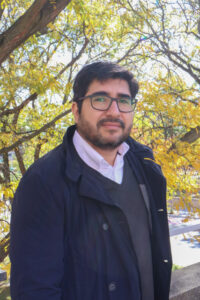
Diego Mazorra is a fellow at the Center for Communication and Democracy within the School of Journalism and Mass Communication at the University of Wisconsin-Madison, where he is pursuing a doctoral degree. His research focuses on political communication, polarization, and the impact of social media on democratic processes and public opinion. Previously, he served as the Coordinator of the Master’s Program in Political Communication at the Universidad Externado de Colombia, where he taught courses on media effects, public opinion, and communication theories.
Diego’s work investigates how digital platforms influence citizen engagement and the role of media in polarized societies, with a specific focus on Latin America. His recent publication, Affective Polarization in Latin America, co-authored with Hernando Rojas, appears in The Routledge Handbook of Political Communication in Ibero-America (2024), which explores the complex interplay between affective polarization and media dynamics in the region. He also co-authored WhatsApp, Polarization, and Non-Conventional Political Participation: Chile and Colombia Before the Social Outbursts of 2019 (Scherman, Etchegaray, Browne, Mazorra, & Rojas, 2022), published in Media and Communication, which examines the role of WhatsApp in fostering non-conventional political engagement and polarization in Chile and Colombia.
Diego holds a Master’s degree in Communication from Pontificia Universidad Javeriana in Colombia. He has participated in several international programs, including the 2013 Annenberg-Oxford Media Policy Summer Institute at the University of Oxford (UK) and the Erasmus+ Staff Mobility Program in 2018 at Anadolu University (Turkey). He has contributed to multiple interdisciplinary projects examining media’s role in civic life and political discourse, underscoring his commitment to understanding and addressing the evolving challenges facing democratic engagement.